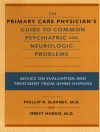The first textbook of its kind, Critical Educational Psychology is a forward-thinking approach to educational psychology that uses critical perspectives to challenge current ways of thinking and improve practice.
Содержание
List of Contributors vii
Introduction 1
Tom Billington, Antony Williams, Dan Goodley and Tim Corcoran
Part I Reflexive Foundationalism: Critical Psychological Resources 13
Chapter 1 Psychology and Education: Unquestionable Goods 15
Ansgar Allen
Chapter 2 Ontological Constructionism 26
Tim Corcoran
Chapter 3 What Use is a Story? Narrative, in Practice 34
Penny Fogg
Chapter 4 Post-Conventionalism: Towards a Productive Critical Educational Psychology 43
Dan Goodley
Chapter 5 Psychoanalysis 52
Antony Williams
Part II Ethics and Values in Practice 61
Chapter 6 Critical Educational Psychology and Disability Studies: Theoretical, Practical and Empirical Allies 63
Dan Goodley and Tom Billington
Chapter 7 Thinking Critically About Professional Ethics 79
Pat Bennett
Chapter 8 The Ethical Demand in an Impossible Profession 88
Niall Devlin
Chapter 9 EP Becoming Phronimos: The Virtue of Phronêsis in Educational Psychology 99
Daniela Mercieca and Duncan P. Mercieca
Chapter 10 Traversing the Expert Non-Expert Binary: The Fluid and Contested Nature of Expertise 108
Catherine Beal
Chapter 11 Joining the Q: What Q Methodology Offers to a Critical Educational Psychology 118
Martin Hughes
Chapter 12 Are We All Psychologists Now? 127
Antony Williams
Part III Putting Critical Psychological Resources to Work in Educational Psychology 135
Chapter 13 Epidemic or Psychiatrisation? Children’s Mental Health in a Global Context 137
China Mills
Chapter 14 The Teacher’s Role in Supporting Student Mental Health and Well-being 146
Helen Monkman
Chapter 15 Towards Restorative Justice 157
Victoria Harold
Chapter 16 Faith and Educational Psychology: Empowering Islamic Perspectives of Muslim Parents 167
Samana Saxton
Chapter 17 Gender, Non-normativity and Young Women who Have Been Excluded 176
Dawn Bradley
Chapter 18 A Mindful Educational Psychology Practice 184
Sahaja Davis
Chapter 19 Some Reflections on Educational Psychology Practice 192
Majid Khoshkhoo
Chapter 20 Finding Attunement and Promoting Positive Attachments 200
Kathryn Pomerantz
Chapter 21 Social Theatre for Social Change: The Relevance of Performance Art in Educational Psychology 209
Nick Hammond
Chapter 22 ‘Being’ Dyslexic in Higher Education: Reflections on Discourse and Identity 218
Harriet Cameron
Chapter 23 A Future? Why Educational Psychologists Should Engage with a Critical Neuroscience 226
Tom Billington
Further Reading and Resources 235
Index 237
Об авторе
Antony Williams is the Academic Director for the Doctorate in Educational and Child Psychology at the School of Education at the University of Sheffield, UK. He also works as a practicing educational psychologist. His research interests are focused in the area of subjectivity and intersubjectivity, with a particular interest in how psychoanalytic concepts and theory may inform as well as potentially disturb psychological practice.
Tom Billington is Professor of Educational and Child Psychology at the School of Education at the University of Sheffield, UK. A critical psychologist, practitioner and academic, his research focuses on the nature of psychological work conducted with young people and the theoretical bases upon which practice is justified, in particular in the fields of autism and child protection, utilizing qualitative research methodologies, primarily discourse analytic, psychodynamic and narrative approaches. His books include Working with Children: Assessment, Representation, and Intervention (2006), Children at the Margins: Supporting Children, Supporting Schools (2004), and Separating, Losing, and Excluding Children: Narratives of Difference (2000).
Dan Goodley is Professor of Disability Studies and Education at the School of Education at the University of Sheffield, UK. He directs the Masters in Psychology and Education, and teaches in the Doctorate of Education and the undergraduate Education, Culture and Childhood programs. His research interests include critical disability studies, critical psychological and sociological theory, and non-normative childhoods. He is the author or editor of many books in the field, including, most recently, Dis/ability Studies: Theorising Disablism and Ableism (2014), Disability and Social Theory (2012), and Disability Studies: An Inter-disciplinary Introduction (2011).
Tim Corcoran is Senior Research Fellow and Senior Lecturer in Critical Psychology at The Victoria Institute, Victoria University, Melbourne, Australia. He has extensive experience in educational psychology as a school psychologist and researcher/academic. His work has involved teaching, research and professional practice in Australia, the UK, Singapore and Iraq. He edited Psychology in education: Critical theory-practice (2014), an international collection of contributions examining critical approaches to educational psychology. More recently he co-edited Disability studies: Educating for inclusion (2015).












